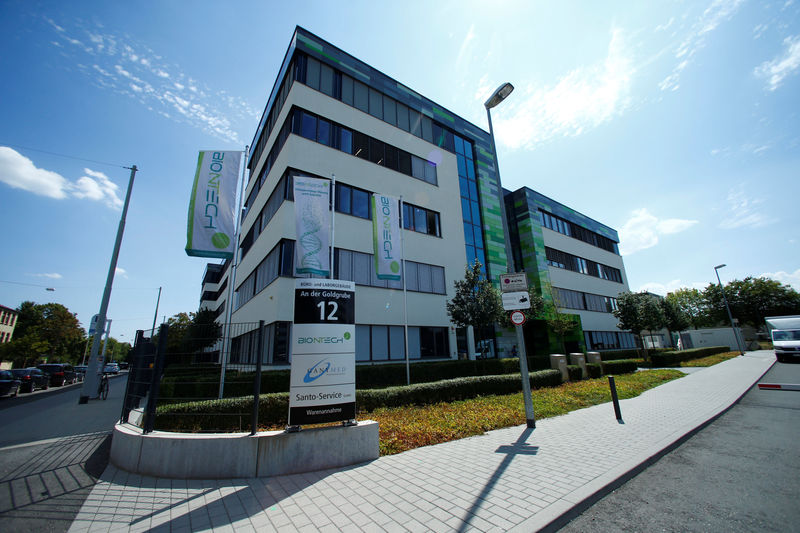By John Revill
KARLSRUHE, Germany (Reuters) - German engineering group Siemens (DE:SIEGn) is redoubling its efforts in an area where it has traditionally lagged: managing the processing of materials into medicines, chemicals or foodstuffs.
Siemens excels at helping makers of cars, planes and trains make their production and assembly smarter by using its software to create distinct items and components - so-called discrete manufacturing.
But when it comes to process industries such as petrochemicals, Siemens has been at a disadvantage to rivals such as industrial machinery and controller makers Honeywell (N:HON) or ABB (N:ABB), which have longer-standing relationships with major oil and gas players.
Now Siemens is investing in the technology used to control mixing, heating, and pressurising ingredients in the process industry - enabling the small-batch and hybrid production of products like drugs, where personalized and niche products are becoming more common.
"We have been developing very well, and have been gaining market share," Eckard Eberle, Siemens's head of process automation, told Reuters.
Under a new strategy likely to be announced on Thursday along with quarterly results, analysts expect Siemens to announce it is incorporating process automation within its broader factory automation business, which aims to digitize and streamline production for clients to improve efficiency.
"The market in process automation is growing at around 3 to 4 percent per year and our intention is to grow faster than that," Eberle said in an interview at the division's offices in Karlsruhe, Germany. "We are doing that already."
Siemens, one of Germany's most famous industrial names, was founded in 1847, and is active in electrification, automation, industrial software and the manufacture of products from trains to turbines.
The Munich-based company, employs 377,000 people worldwide and generated revenue of 83 billion euros in 2017.
Unlike the Digital Factory division, which houses Siemens' discrete manufacturing software and has been the star performer, Process Industries and Drives (PID) has been one of the weakest-performing divisions.
PID, which represents about 10 percent of group sales, saw its revenue fall 1 percent last year, while orders grew by only 2 percent. It also had the second-lowest operating profit margin, at 5 percent, less than half the overall 11.2 percent.
But analysts reckon Siemens has a decent chance of success at galvanizing its process automation business.
"With large scale process automation, such as downstream oil and gas, there are not many greenfield opportunities and the incumbents sitting on a large installed base have a clear advantage," said James Stettler of Barclays (LON:BARC).
"With more smaller batch manufacturing and hybrid projects there's more contracts around to go for."
At present Siemens has a 15 percent share in the $14 billion global market for distributed control systems - the computer "brains" which oversee production - lagging market leaders ABB and Honeywell, according to ARC, an industrial analyst company.
HOLY GRAIL
One such opportunity that Siemens has grasped is at German biotech company BioNTech, which enlisted Siemens to help develop personalized anti-cancer treatments made with just a few drops of medicine rather than mass producing thousands of liters.
The Mainz-based company, which is working with Roche's (S:ROG) Genentech arm, uses Siemens software to produce trial batches of drugs which identify and attack cancerous cells.
"Each person's cancer is 95 percent different, so the ultimate target is to produce medicines for the individual in only small quantities which enable the immune system to identify their specific cancer and attack it," said Sierk Poetting, BioNTech's chief operating officer.
"It is not something you can produce in large quantities and put on the shelves to treat lots of people."
BioNTech's project would not have been possible without a digital set up.
"In the past, an individual dose would have cost hundreds of thousands of dollars, but we are looking to reduce this to a tenth or a 15th of the cost," Poetting said.
This kind of small-batch production will require more automation and digitization of processes.
"Being able to produce in a batch size of one product is the Holy Grail for industrial firms," said David Humphrey, an analyst at ARC.
Simon Toennessen, an analyst at Berenberg, said Siemens was doing well in acquiring new business in process automation.
"I've heard they are in the top three in new installations right now," he said. "The company's expertise in software is a big reason for this. They are trying to leverage the strong design and simulation capabilities they have in the automotive and aerospace side and now deploying that into process industries."
